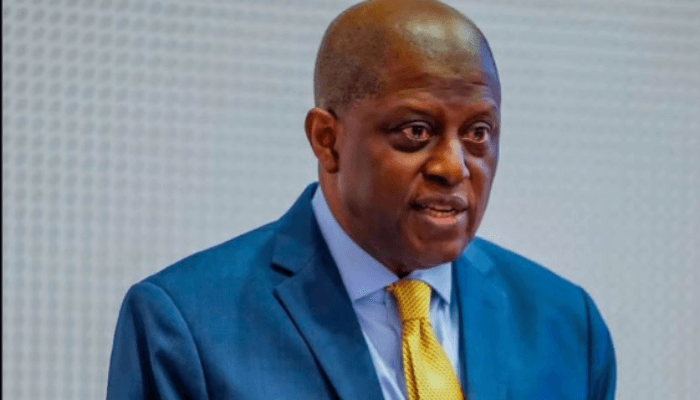
The economic reforms introduced by the Central Bank of Nigeria (CBN) have continued to strengthen Nigeria’s appeal as a viable and attractive destination for investment. Within just six months of implementing these reforms, the country recorded a significant surge in foreign portfolio investment inflows, reaching a total of $3.48 billion.
This marks a sharp contrast to the $756.1 million recorded during the period prior to the reforms. The substantial increase in capital inflow underscores a growing level of investor confidence in the CBN’s capacity to effectively steer the financial system and manage the broader economy. The positive momentum sends a strong and encouraging message to the global investment community regarding Nigeria’s economic direction.
Nigeria’s economic managers have continued to take steps meant to boost foreign capital inflows to the economy. Already, the CBN’s policies, including the exchange rate unification, have led to significant foreign capital inflows to the economy while reducing its intervention in the forex market.
The floatation of the naira and the clearing of over $7 billion FX backlog improved the country’s outlook with foreign investors as well as multilateral organizations, like the World Bank describing it as bold intervention to improve the economy’s sustainability in the long run.
Olayemi Cardoso, governor of the CBN, disclosed that upon assuming office, his leadership prioritised rebuilding Nigeria’s economic buffers and strengthening resilience.
Inflation, which had surged to 27 per cent, was one of the most pressing challenges, partly driven by excessive money supply growth. While the GDP growth had stagnated at a meagre 1.8 PER CENT over the previous eight years, money supply expanded rapidly, averaging about 13 per cent growth annually.
This imbalance not only fueled inflation but also contributed to a significant depreciation of the naira. He explained that inflation creates uncertainty for households and businesses, acting as a silent tax by eroding purchasing power and driving up living costs.
The nation was also grappling with a fiscal crisis, marked by unsustainable deficit financing through the Central Bank’s Ways and Means advances, which had reached an unprecedented N22.7 trillion by 2023, equivalent to almost 11 per cent of the GDP. In addition, quasi-fiscal interventions by the CBN, totaling over N10 trillion, undermined market confidence and weakened the effectiveness of its policy tools.
Against these odds, the CBN under Cardoso has brought new hopes in the management of the financial system and economy. The current macroeconomic stabilisation efforts support Nigeria’s ability to attract foreign investors to its markets. For instance, at the end of 2024, Nigeria leveraged its improved economic fundamentals to re-enter the Eurobond market, seeking to address its fiscal deficit. The move marked the country’s return to the international debt market in November after a two-year absence. In a dual-tranche Eurobond issuance, investor demand surged, with subscriptions exceeding $9 billion.
Despite the strong interest, the government chose to raise $2.2 billion. The issuance included $700 million in 6.5-year bonds set to mature in 2031, carrying a 9.625 percent coupon rate, and $1.5 billion in 10-year bonds with a coupon rate of 10.375 percent.
The high-interest rate environment also attracted higher foreign portfolio investment inflows, which totaled $3.48 billion in the first half of 2024 compared to $756.1 million during the same period in 2023. This trend reflects growing investor confidence in the country’s ability to manage its external debt burden, a positive signal for Nigeria’s Eurobonds.
Although inflation remains a significant challenge, with consumer prices reaching 34.80 percent in December, CBN’s aggressive tightening, which raised the monetary policy rate (MPR) by a cumulative 875 basis points to 27.50 percent in 2024, was a move to anchor inflation expectations.
The high policy rate, which is expected to extend through 2025, albeit some rates cut within H1 of the year, could attract more foreign portfolio investors to the country’s fixed-income market, which offers juicy yields. While inflationary pressures persist, especially from fuel price deregulation and exchange rate adjustments, the overall trajectory suggests potential gradual improvement. In the midst of these developments, Cardoso announced during the last Banker’s Night in Lagos: “I want to assure you that at the Central Bank, every decision we make is driven by a commitment to serving the best interests of the people. This is why we will continue strengthening our internal capacity and processes to ensure our decisions remain firmly rooted in evidence-based analysis”.
Ifeanyi Ubah, head of Investment Research – Global Macro Strategist, at Commercio Partners, said the government will continue to meet its obligations through a mix of multilateral loans, syndicated facilities, and potentially new Eurobond issuances.
In a report, “Nigeria’s Eurobond Outlook: Resilience Amid Global Uncertainty” he explained that the country’s Eurobond performance in 2025 will hinge on a delicate balance between domestic improvements and global monetary conditions.
“The country’s strengthening foreign reserves, improving fiscal revenues, and progress in structural reforms provide a robust foundation for managing its external debt. However, global headwinds, particularly a potentially hawkish Federal Reserve amid rising U.S. inflation, could weigh on market sentiment,” he said.
Ubah explained that if the Fed maintains restrictive rates, investor appetite for emerging market assets, including Nigeria’s Eurobonds, may weaken, pushing yields higher. On the other hand, he added that continued reform momentum and effective management of external liquidity risks could offset some of these pressures, ensuring that Nigeria’s Eurobonds remain a relatively attractive option within the SSA space.
He said that for now, the outlook is cautiously optimistic, contingent on both domestic policy coherence and external economic developments.
“While there are uncertainties over the size of net reserves, owing to FX swaps with local banks, Nigeria’s gross reserves provide an estimated nine months of imports, well above the median for peers in the ‘B’ rating category. The country’s ongoing security challenges, particularly in oil-producing regions, could undermine efforts to boost crude production, which could average 1.4mn barrels per day in 2025, still below pre-pandemic levels,” he stated.